Planting Our Hearts in the Dark
It is all we don't know that makes us human. It is the heart we share that makes life beautiful. + Middle Eastern Masgouf Grilled Fish Recipe
500 days of darkness. I do not know how to bring back all the dead.
500 days of light. What has been sowed each day by each of our hearts since the 7th of October is the question I want to ask. The hope I want to offer.
It’s been cold in Jerusalem, rainy and stormy with news. We don’t know what we will wake up to, so I don’t turn on the news in the morning. I figure what is important will be discussed in the coffeeshop. The news feels like a darkness as Hamas is redefining the words cruelty, wicked and evil.
But we are brought up not to be scared of the dark. It is in darkness that the Jewish sages declared the 15th day of the month of Shvat, which was last week, as the New Year of the trees. It is a day Jews gather and feast on the seven biblical fruits of Israel, and recite many blessings.
How do we celebrate growth and fruits amidst the darkest and coldest of days? And yet it is in these icy conditions that almond flowers blossom, red anemones peep through the ground, wild pink and white cyclamens burst through stair cracks and rocks. As if to say, We are not afraid of the dark. As if to say, Do not be afraid of the dark. As if to say, See what can grow despite the darkness.
The ground feels wise and comforting this season. The trees bare their true shapes, limb by limb their skeletons, naked and still. Darkness is a time for truths to be witnessed.
I cannot say what truths. Every person has their own. I write wanting to offer hope. In Iraq the festival of Tu BiShvat is called the blossom of the trees, this feels to me like a naming of hope. In this season there is no fruit (besides citrus), most of the seven species fruit are dried and preserved (before these refrigeration and importation days). My great grandfather in Al Uzair used to have thirty different types of fruit at his Tu BiShvat meal, many he procured from Israel. Blossoms are beautiful.
Plant trees in the darkness is the message of Tu BiShvat. It is the ancient Jewish way to plant when the ground is bone-chilling, and the rains are falling so your hands dig into mud and grow cold. But the heart is warm as it plants.
We do not know if what we plant will grow. Seedlings of brocolli and lettuce, garlic cloves, blueberry bushes. Is there enough shade, sun, water? Is the soil fertile enough? But still believe and plant in the dark.
Even when the darkness breaks us. October 7 broke something fundamental in me. Shattering innocence and trust, and yet I still believe in planting in the dark.
Planting ones heart is a deeply personal affair. Sometimes it takes the form of howling on social media, or sharing beautiful human and hopeful stories, but real planting takes place in the heart. In silence, it is a stillness, a strengthening of the heart. So it grows stronger, not bitter. Strong means being able to hold both the darkness and the light.
The Jewish sages say that each of us are like a speck of dust, “For dust you are, And to dust you shall return.” (Genesis 3:19), and yet the whole world was created for each of us.
“Therefore, since all humanity descends from one person, each and every person is obligated to say: The world was created for me, as one person can be the source of all humanity, and recognize the significance of his actions.” (Talmud, Sanhedrin 37a).
We are so small and insignificant. We are so tremendously central and important in this world. Each of us. Specks of dust create the ground we walk.
I do not know how to bring back the dead.
I plant words of deep grief and witnessing as at a wedding I encounter a mother who lost her son early in the war. He sacrificed his life for us. I thank you and him. My words are like sowing unknown seeds. Deeply uncomfortable. Deeply awkward, but born from my heart. Do not look away from grief. Do not think suffering that is silent does not need words. Always say something to a person in grief, especially a fallen soldier’s mother.
I do not know how to bring peace.
Peace has become a word echoed in our heart chambers, a false promise, an impossible task, I am a speck of hopeful dust. What would inner peace look like? I plant seeds of doubt in any hate that arises. I plant seeds of heart and compassion and protection. If each of us examines our heart-hates what world could we live in?
I plant sourdough starter bubbles and am filled with wonder when the dough grows. Sometimes it is so cold it takes a whole day or two, but I swear the dough still grows into bakeable bread. Not in time for the festive meal of Tu B’Shvat, but in its own time. I am learning to sow patience and understanding. So much is not in my control.
I am a speck of dust.
I am a whole world.
Every hostage is a whole world.
Who doesn’t cry with the news that Shlomo Mansour, 86 was murdered on October 7th. His body taken hostage. He survived the Farhud massacre in Iraq, June 1, 1941, at age 3, the trauma of which he wrote about in his diary (read here).
Who doesn’t cry when we see them freed. Sagui Dekel-Chen is the son of Jonathan Dekel-Chen, a professor I had at Hebrew University who taught a Kibbutz course, and took us to visit his kibbutz — Nir Oz. It feels like a miracle to see Sagui free, thrilled with the news of his third daughter, born two months after his abduction. So much joy and pain at once.
To feel is beautiful
but we don’t always get to choose
what we feel.
Hamas has redefined cruelty. The world has redefined silence. Yet there are fresh almond blossoms on the streets blowing in the winter winds along with streaming yellow ribbons tied to street poles and trees. As the rains come the blossoms will carpet the streets white and pink. The fruits will grow next.
We don’t know what we are planting as we have faith in the darkness. As we bake bread and share it with friends. As we cook meals over which we bicker with our family — connecting. No one asks for darkness. Everyone’s darkness is personal. But even if it’s the harder choice — plant seeds of faith and beauty in the every day.
I write to you my fellow speck of dust because together we make a whole world. Because I want to believe that 500 days later we are planting our hearts more, even if it feels dark, deeply uncomfortable, and unknown.
Heart offerings are deeply personal, but I’m curious what your heart offerings are. Share them. Inspire me. We inspire each other.
Sarah
I plant my heart through the meals I cook. Below is a recipe of the Mesopotamian grilled Masgouf fish, perfect served with rice, perfect served with family and friends.
And don’t forget to check out the links for Qesher’s Shoham’s Bangle Bookclub event this week Tuesday, and the following week’s Qesher lecture Recovering the Lost World of Babylonian Jewry. More details below.
Easy Middle Eastern Grilled Fish - Masgouf
Every Iraqi knows what Masgouf fish is. It is known as the national dish of Iraq. When I began researching Iraqi Jews one of the most beloved memories and stories are about Masgouf fish, enjoyed at picnics on the Tigris River islands that appear in the summer months. Eaten grilled with tomatoes and onions on charcoals, and fresh flat Iraqi bread.
Recently inspired I grilled masgouf for friends, abashed because I did not cook it on charcoals. Abashed because I didn’t use carp as Iraqis do. Carp in Iraq is beautiful and huge. Hold out your hands, that is how big a carp you can fish up from the Tigris River my aunt tells me, recalling her memories of Masgouf. They were huge. I settled for Denis fish - which is sea bream. That’s my family’s favorite fish, and I suggest this recipe works best with your favorite white fish, skin on. I didn’t grill the onion and tomatoes as the recipe called for on charcoal. A frying pan had to do. I added the spices, but had a feeling that everyone has their own unique blend.
What I can offer here is what I did. You can google Masgouf and find a whole range of recipes. The main thing is to have a really hot grill oven. The main thing is to gather your family, friends, strangers, whoever you want to share a meal with. The main thing is to be together. That is the true secret ingredient of any Iraqi food, especially this national, Mesopotamian dish.
Ingredients
2-3 Sea Bream (or barramundi, carp or any white fish) filleted or butterflied with skin on (You can adjust according to number of servings required. It goes a long way I find.)
3-4 Tomatoes
2 Onion
1 Lemon
A pinch of crushed Caraway seeds (optional)
1 teaspoon Paprika
Salt
Pepper
Parsley for garnish
Method
Preheat oven on high grill/broil. Or heat up charcoal barbecue.
Peel and cut the onions into half moons, sauté in frying pan with heated olive oil. Add sliced tomatoes, paprika, caraway, salt and pepper. (Salt to taste. Perhaps half a teaspoon of salt and a good grind of pepper.) You can also place the onions and tomatoes to grill with spices in the oven rather than a frying pan.
Drizzle butterflied or filleted fish with olive oil and lemon juice and salt and pepper (to taste). Grill in the oven on high for 10-15 minutes, or in a fish metal barbecue net on a charcoal bbq (preferred authentic method).
Serve fish with tomato and onion mixture with Iraqi flat pita or white rice. Can garnish with parsley and lemon pieces.
Enjoy and let me know how it goes!
Notes:
Qesher Book Club Shoham’s Bangle Online, Feb 18, 2025 - Because I’m excited to present my Iraqi Jewish family intergenerational inspiration behind my picture book Shoham’s Bangle with Qesher at this free online event. I hope you can join me link to book here.
Qesher Recovering the Lost World of Iraqi Babylonian Jews Online Lecture, Feb 25, 2025 - I am excited to present the world of my family and ancestors I’ve discovered in my intense research and interviews as I follow my obsession to recover my roots. Below is a description of the talk and here’s the link. I hope you can join me for this too!
For more about me and my writing visit my website www.sarahsassoon.comTo support my work please consider buying my children’s books, the award winning Shoham’s Bangle, and my latest This is Not a Cholent. My mission is to spread and educate about Jewish Middle Eastern culture.
Read my free online, award winning poetry collection, published by Harbor Review - This is Why We Don’t Look Back.
Note - My Substack will be fortnightly. Maybe more often… I appreciate all comments, all conversations, and all sharing.
Further - All mistakes are proof that I am human, and this is not an AI publication.

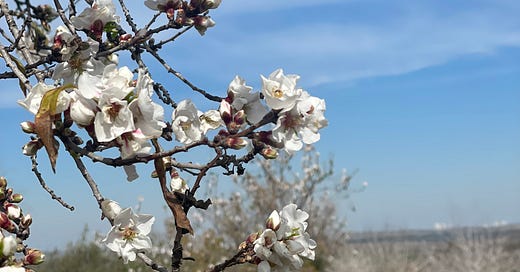



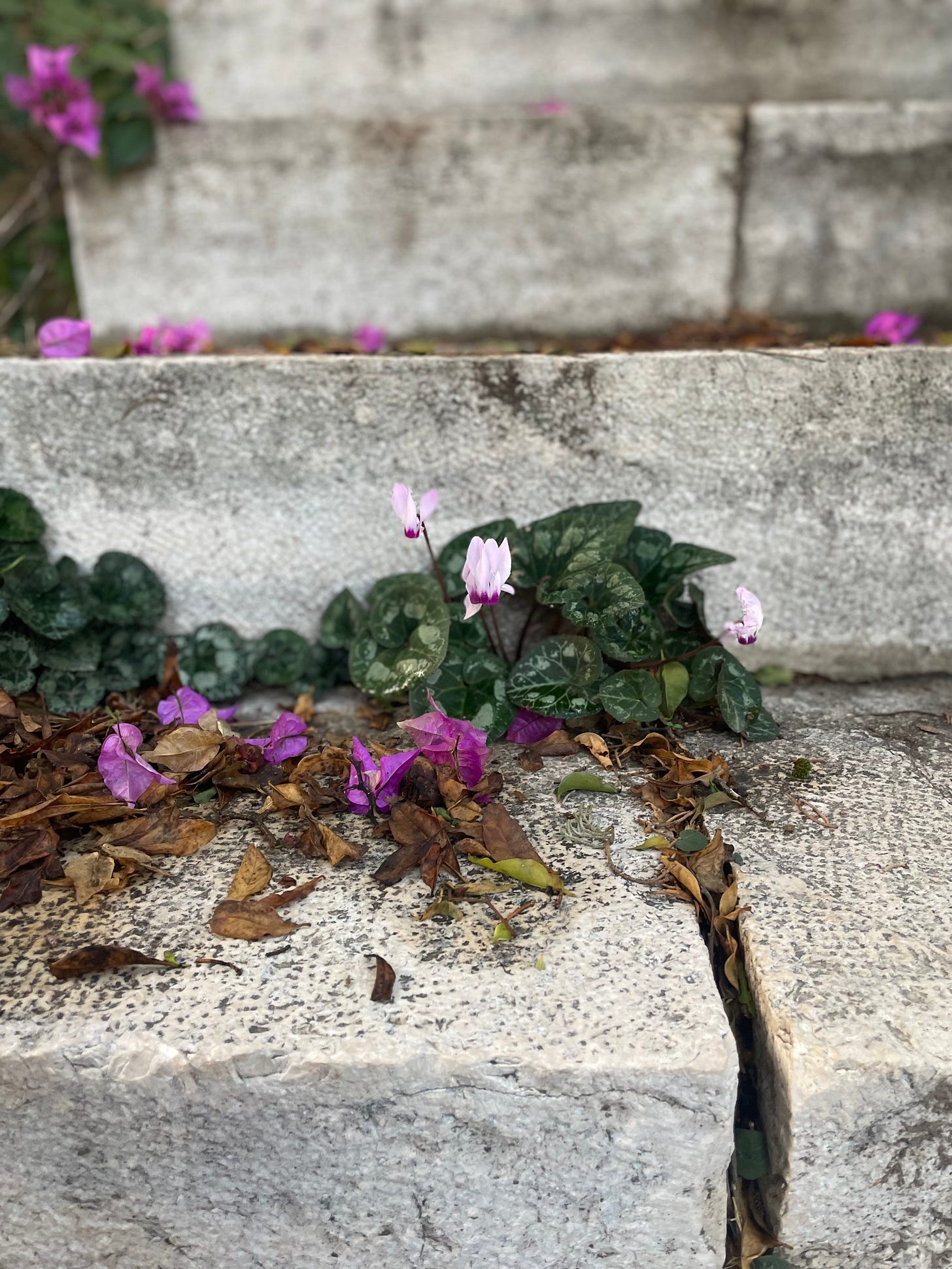
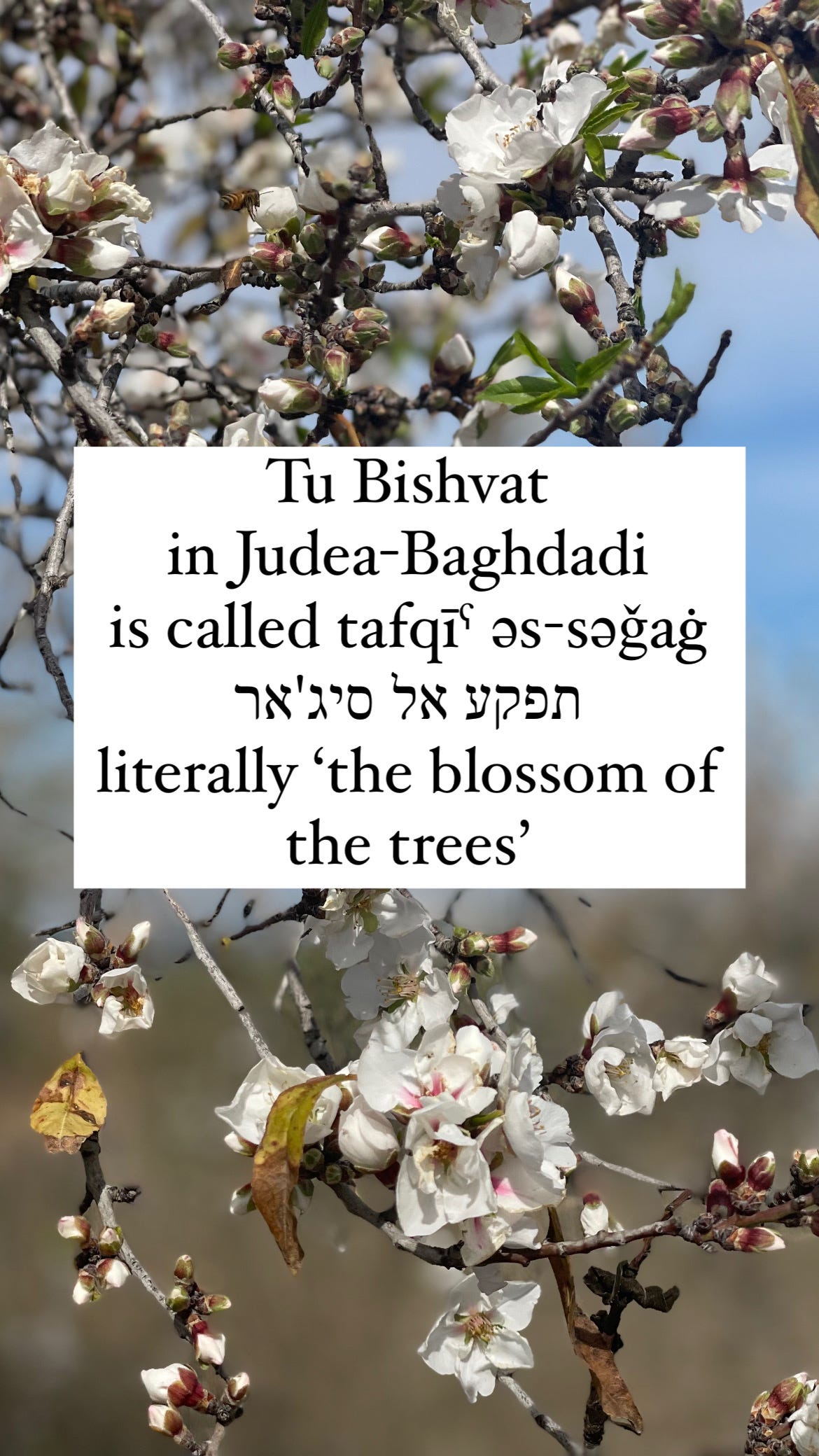
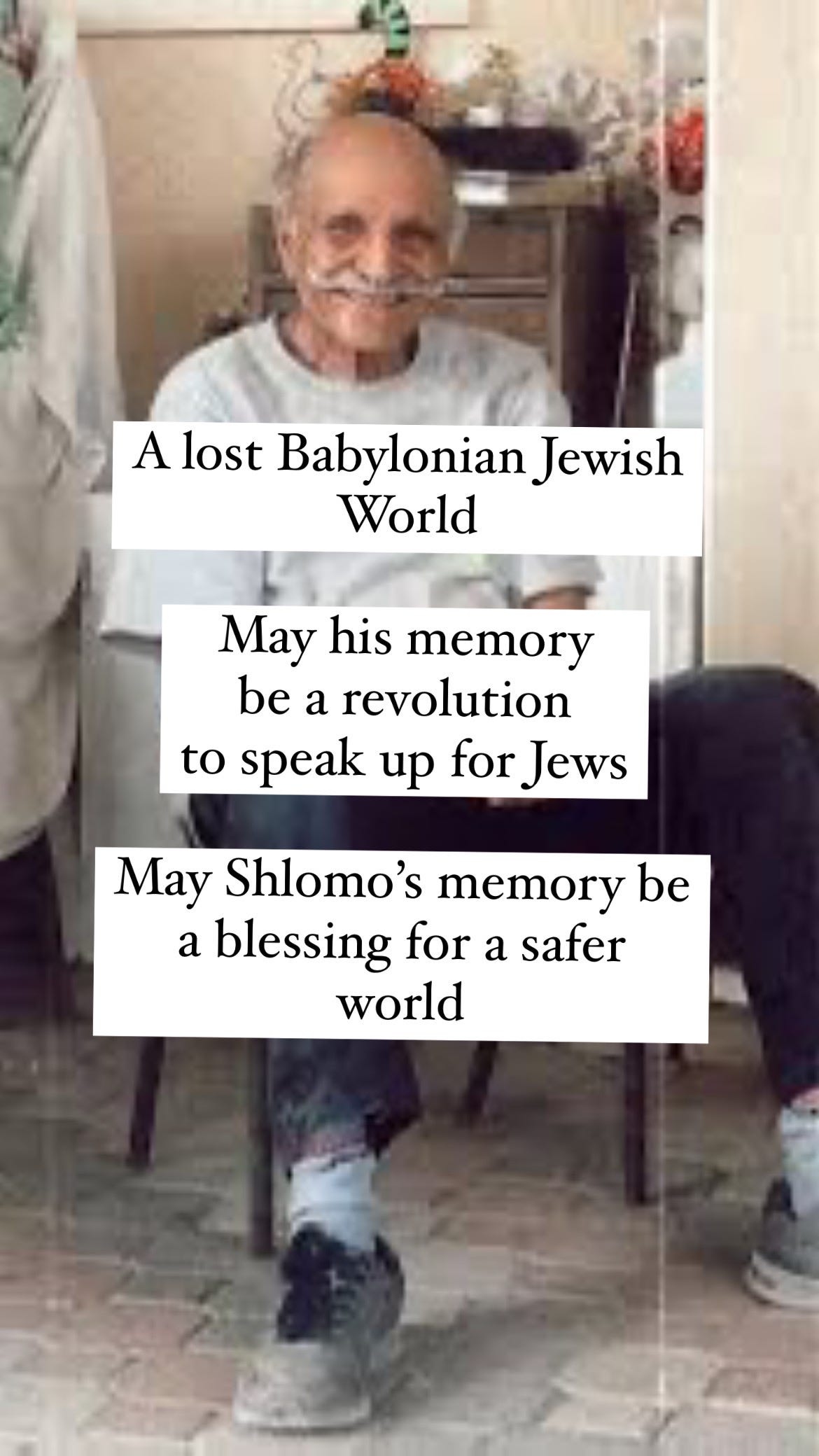
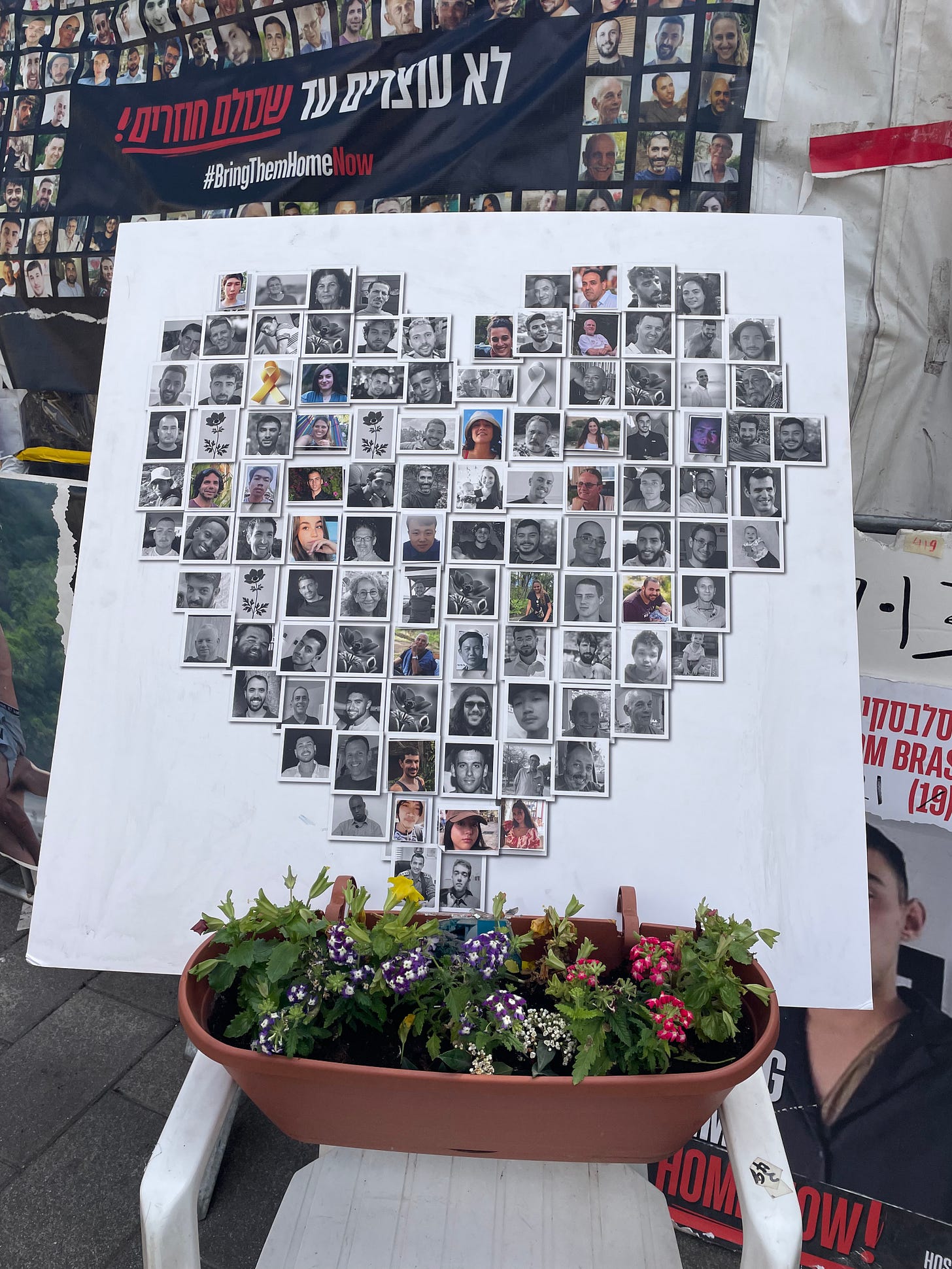
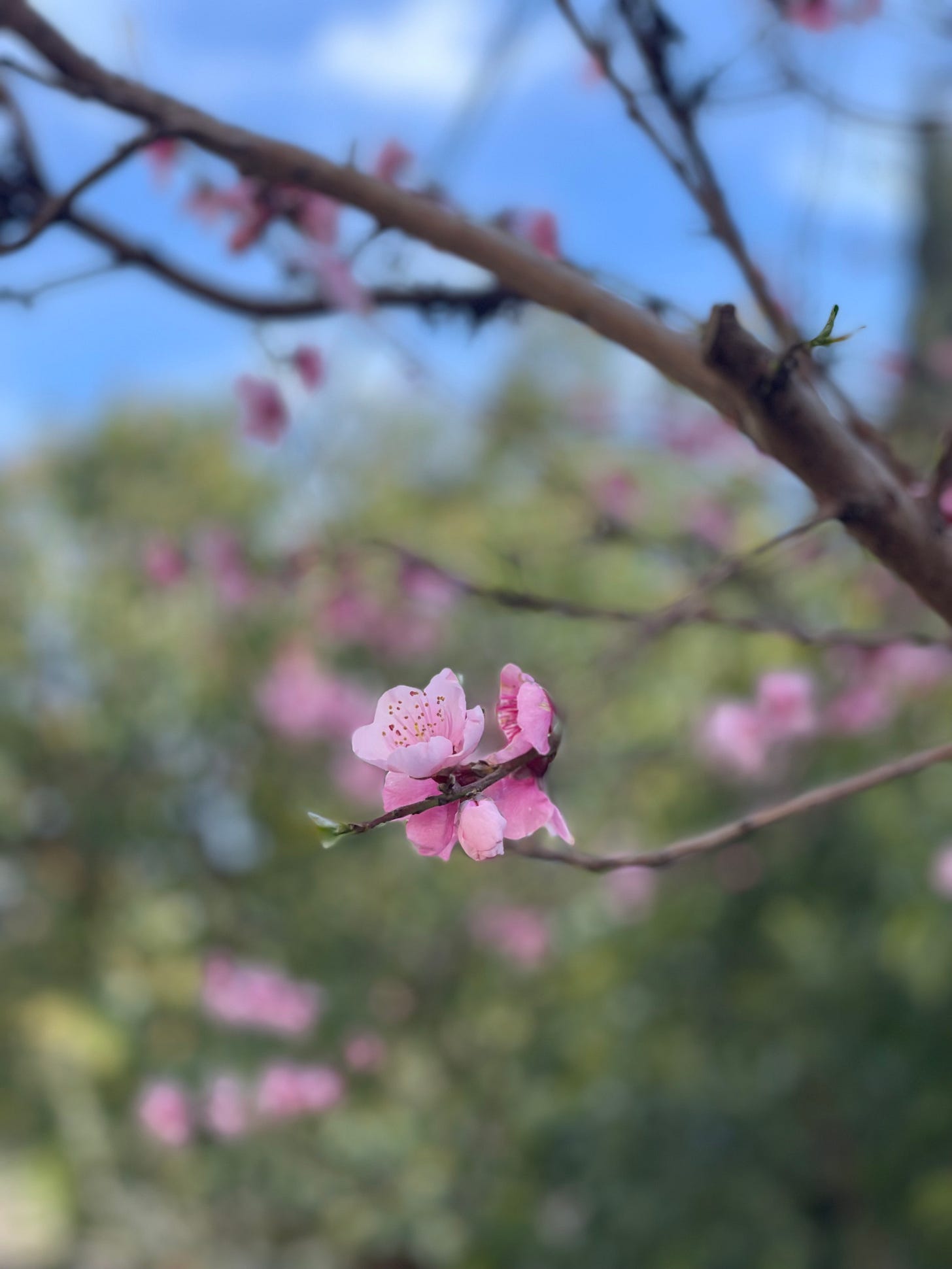
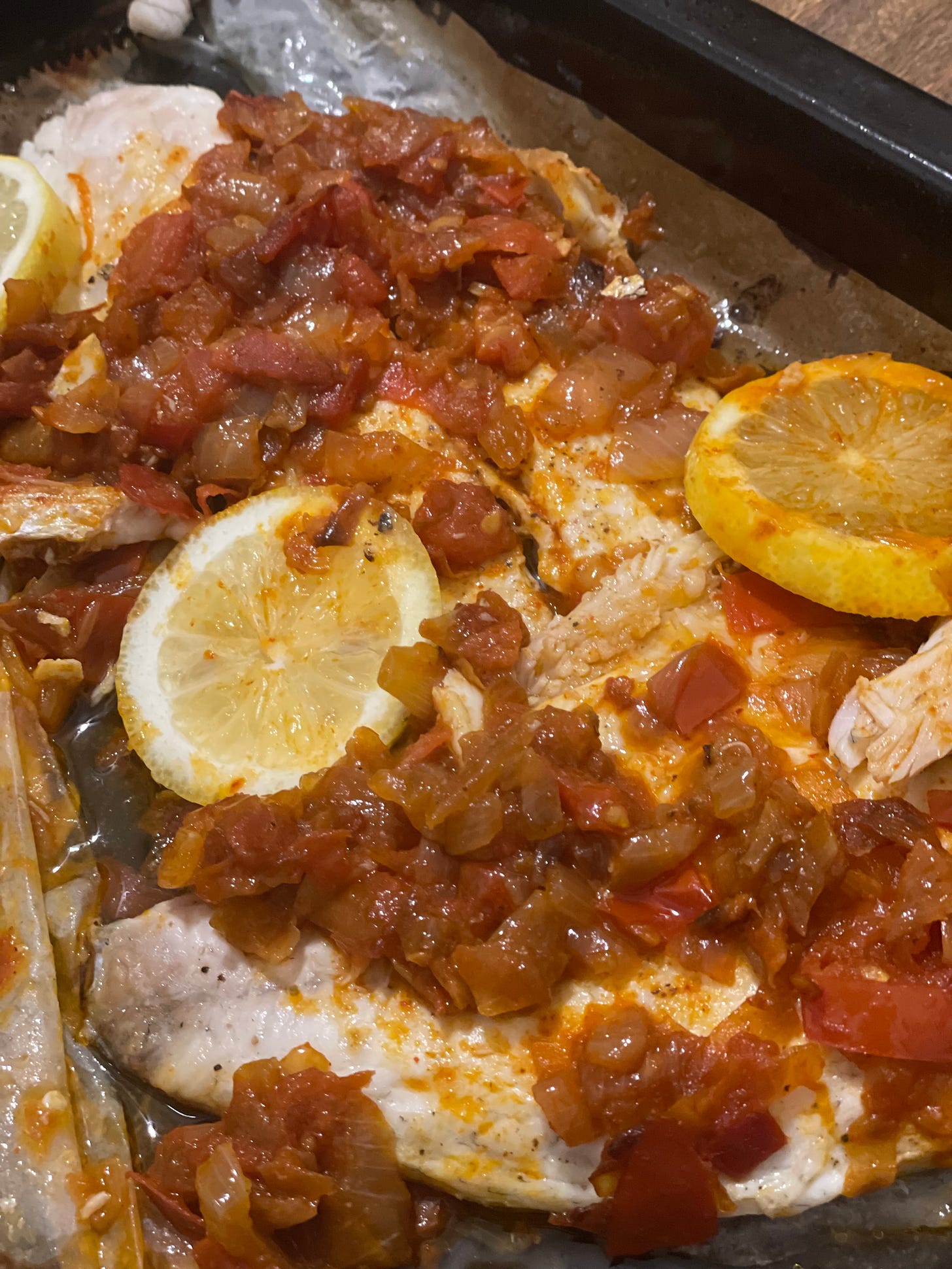
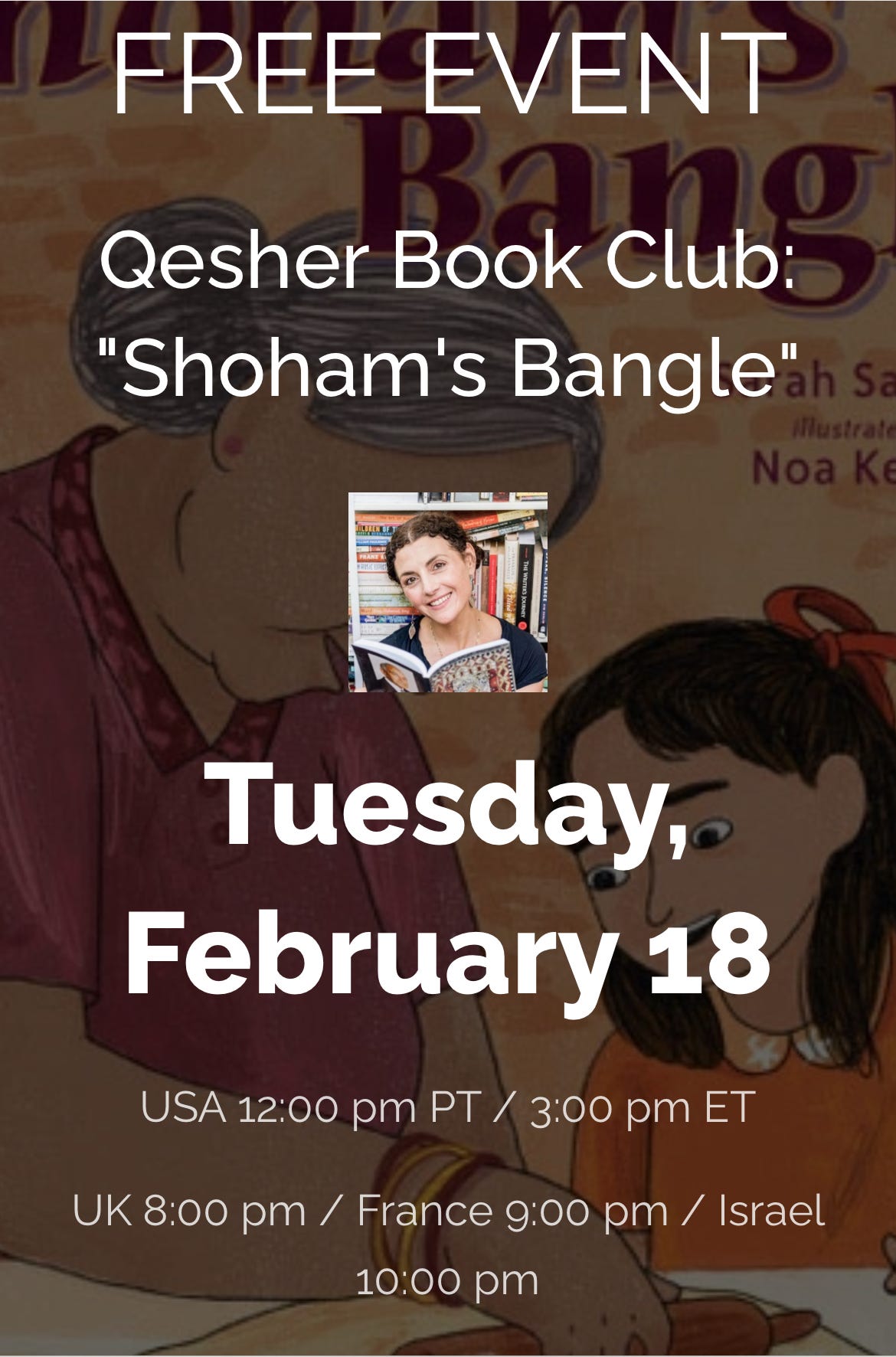
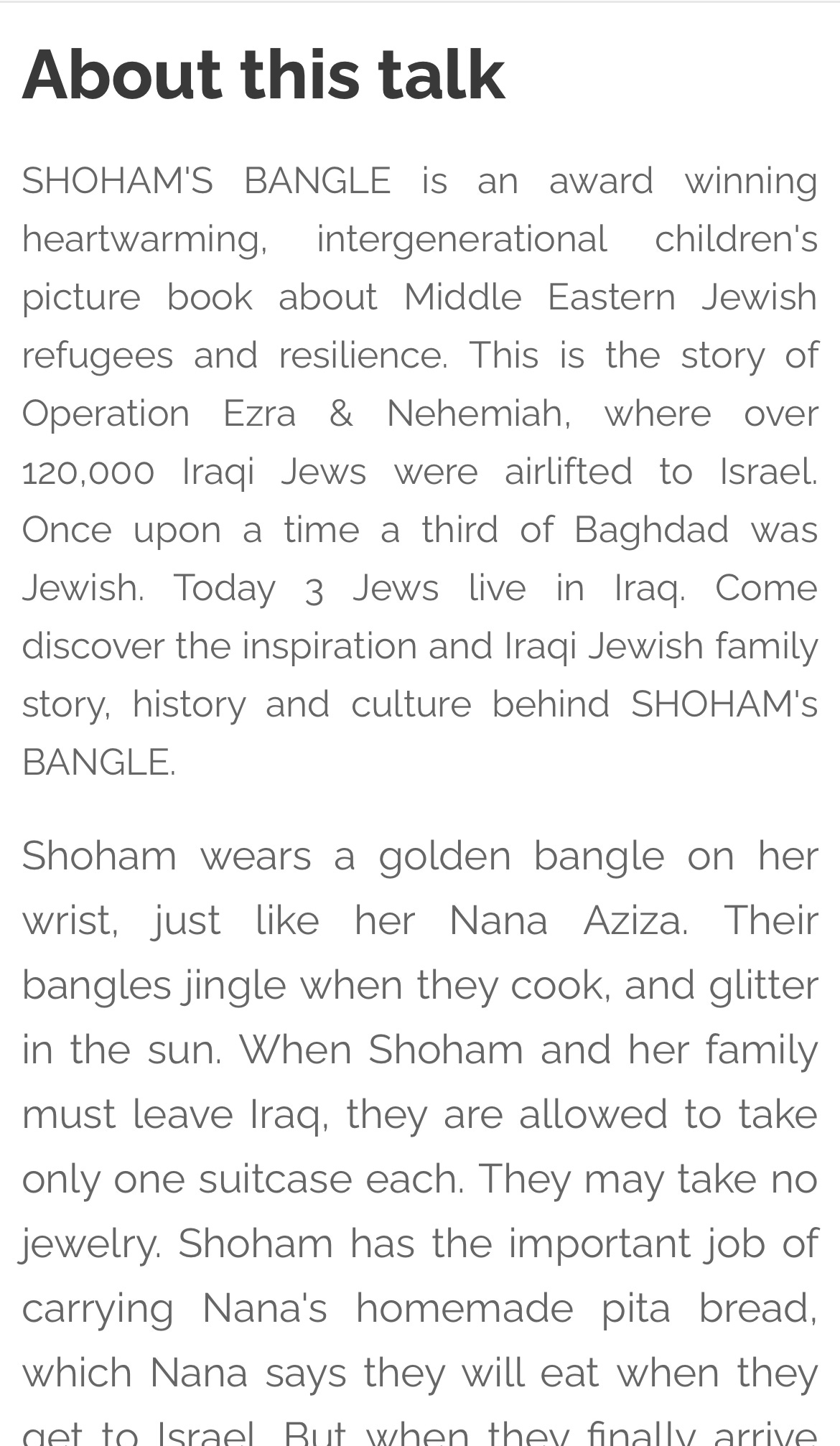
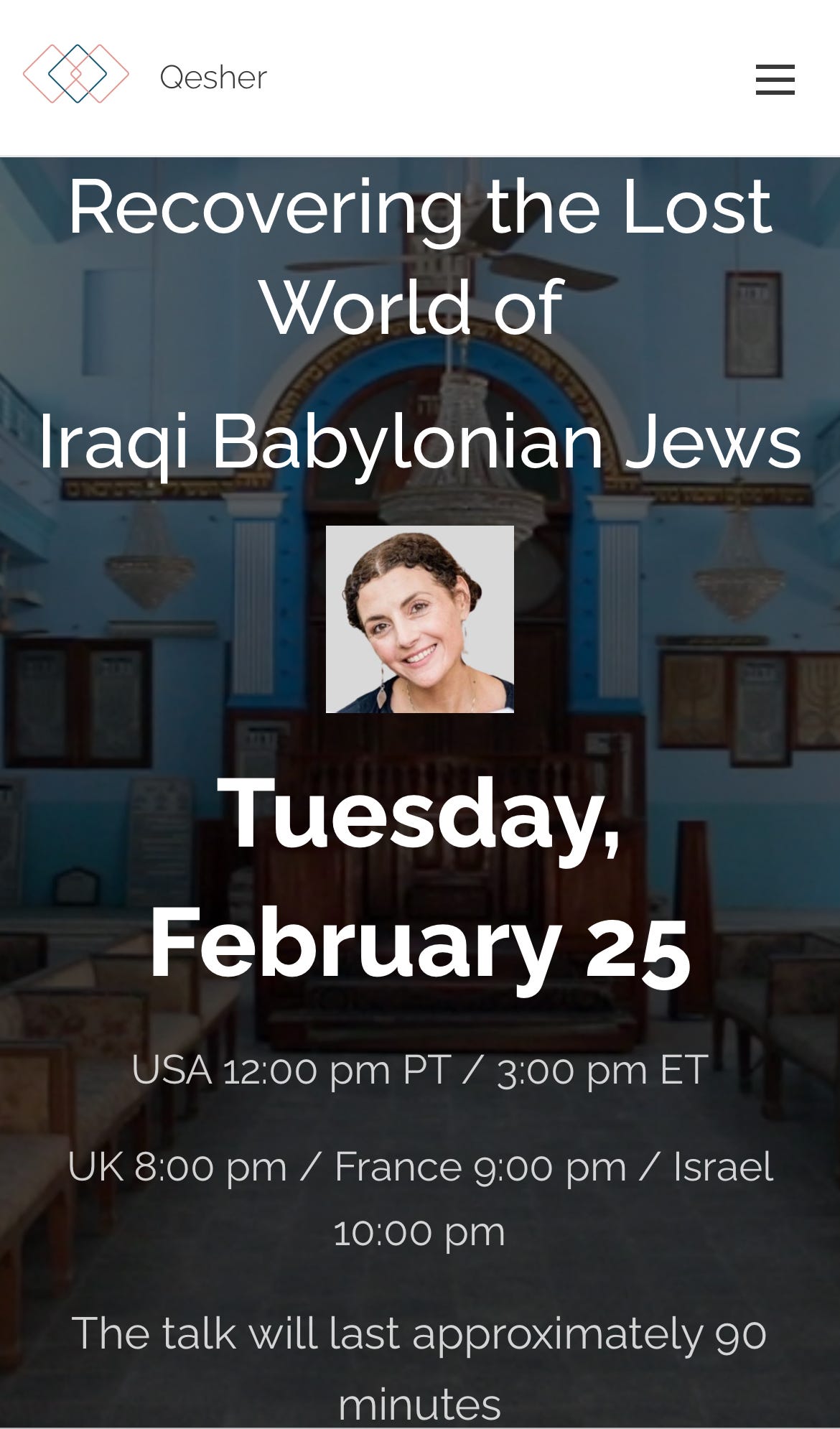
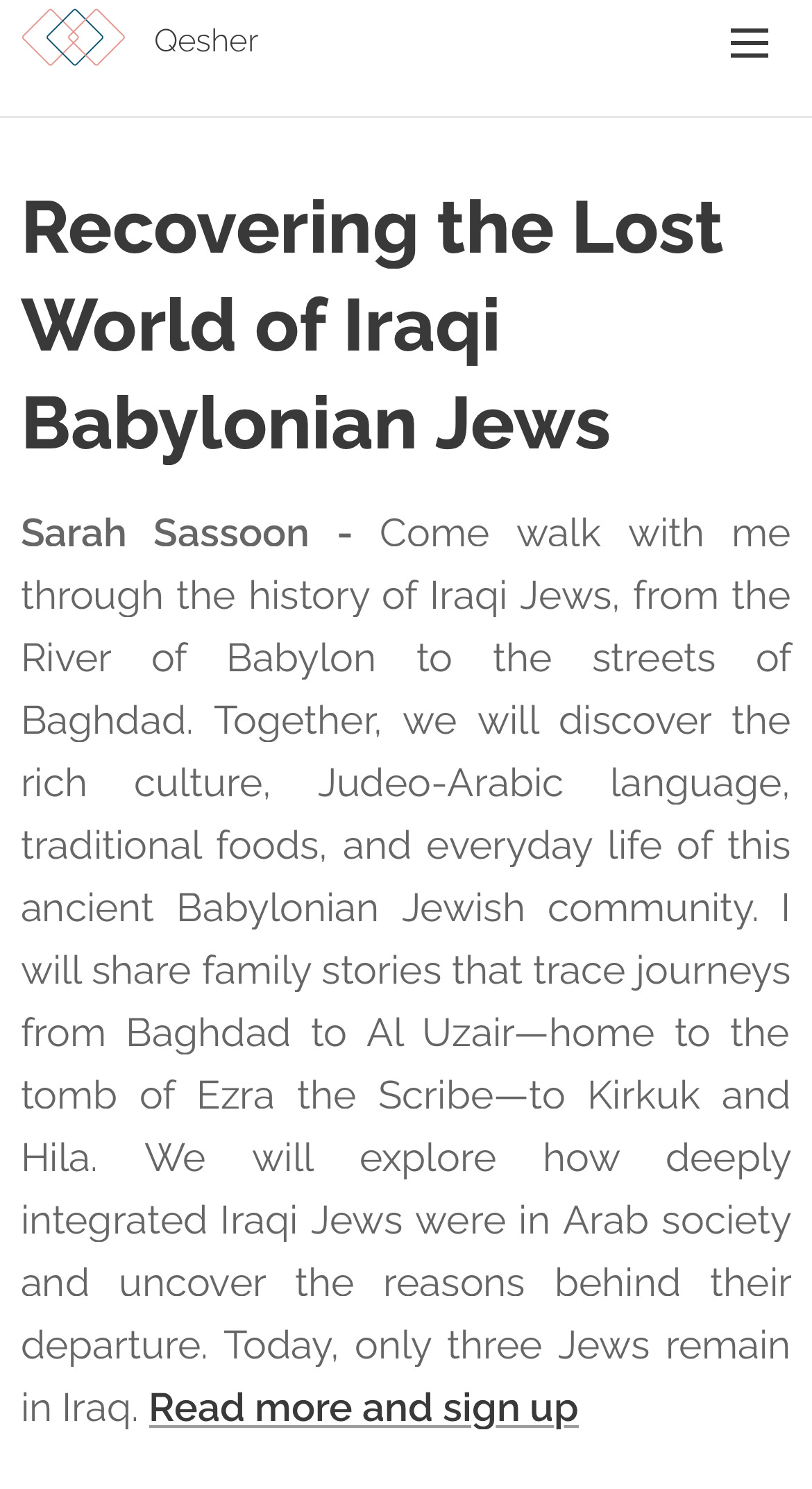
I plant my heart by letting others know the beauty, strength and gifts I appreciate in them and by listening and being present if someone is hurting.
Thank you for sharing this concept.
Thank you for sharing your heart! You inspire me!